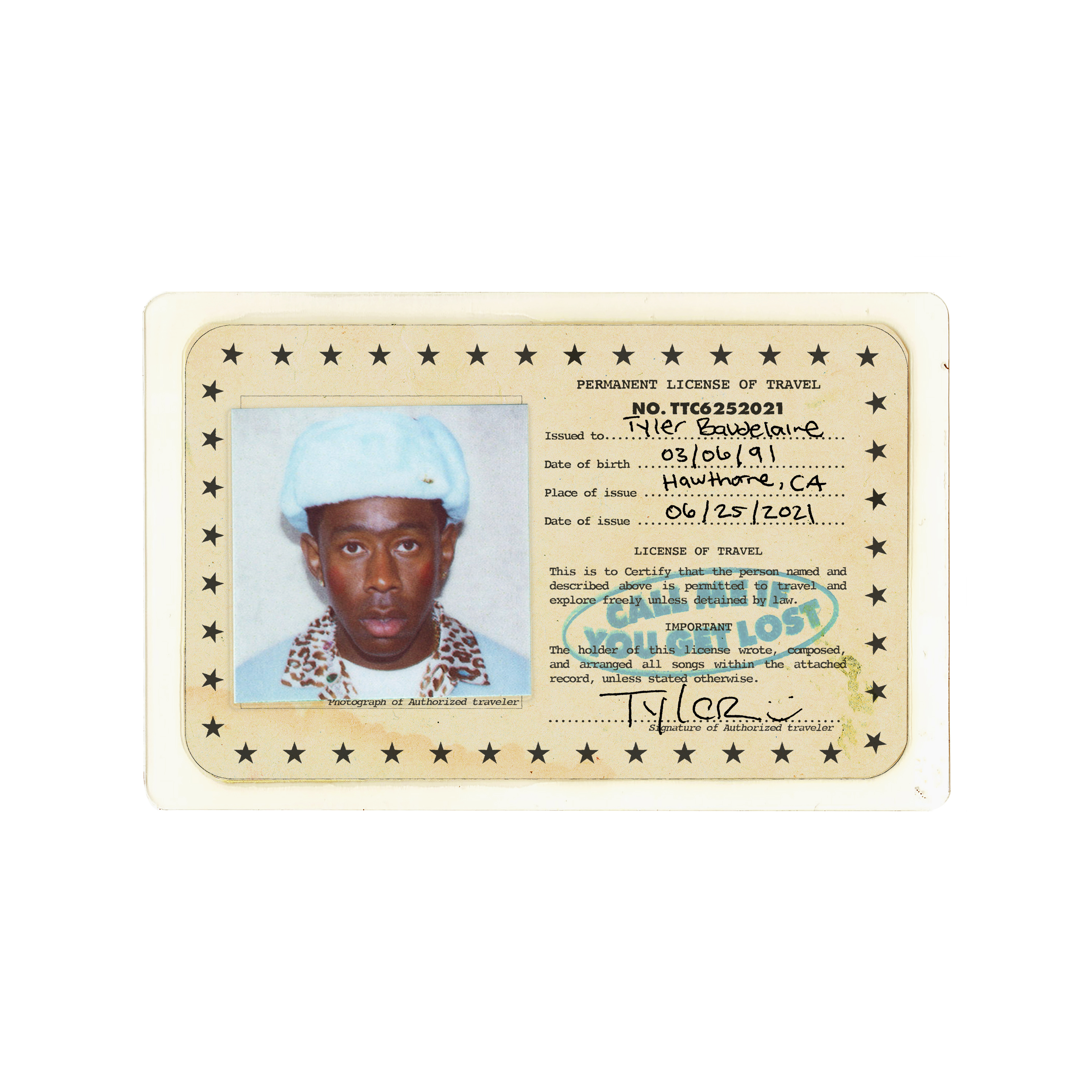“Tyler Baudelaire” has arrived. The seventh full-length project from Tyler, The Creator arrives with a new character: an eclectic globetrotter who joins a long list of personas that Tyler has created throughout his career.
Before even getting into the actual musical content, the album cover is a fantastic and memorable choice. The obvious homage to Ol’ Dirty Bastard’s “Return to the 36 Chambers: The Dirty Version” is a great nod to the late rapper and foundational figure in the genre. Tyler’s own twist on the iconic album cover truly sets a perfectly fitting image for the themes of the album and his new persona.
Thematically, the whole album is outstanding. The “Tyler Baudelaire” character is original, hilarious and entertaining. No matter how widely the tracks vary sonically, the lyrical content consistently develops the character of Sir Baudelaire. The lavish Baudelaire has a world of accolades and material possessions that he primarily relishes in, but below the surface he is still troubled by his longing for an eluding love, a contemplation with past personal issues and a critique of societal concepts in the present, all of which come as a surprise as these issues should theoretically be solved by his status and worldliness. International escapades, complex love interests, an obsession with foreign cars and a refreshing swagger are just some of what build up Mr. Baudelaire into an intriguing figure.
The production is dense, intricate and marvelous. There are so many styles and sounds present, and the ability to execute across this vast variety is astounding. Exquisite samples and unique instrumentation incorporating everything from woodwinds to hard-hitting percussion lay a production foundation that is remarkable. Lush, tropical instrumentals like on “Hot Wind Blows” and “I Thought You Wanted To Dance” transition to darker trap-influenced beats such as “Juggernaut” and “Lemonhead” and to everything in-between with a surprising ease. Appropriately for the international superstar and traveler Baudelaire, the musical influence comes from all types of genres, and everything is masterfully placed, blending the lighthearted and warm soundscapes of the lavish adventures of Tyler Boudelaire with the more gloomy sonic backgrounds of doubtful contemplations and detrimental conflicts. No matter what sound is present, Tyler kills it with consistently great performances.
One of the most special aspects of this album is that it truly feels like it could have only been put together by Tyler, the Creator. Genuinely at the pinnacle of creativity and innovation in hip-hop, Tyler does so many things across the album at such a high level. It’s impossible to definitively place Tyler in any specific genre, and much less any subgenre of hip-hop. However, as opposed to his previous album “IGOR,” “Call Me If You Get Lost” is much more of a return to Tyler’s roots in rapping, with a greater amount of pure bars and hard-hitting beats.
Tyler boosts his own performance by complementing the album with exciting features, coordinating an amazing group of guest appearances. I was certain that a few of the features would be strong, particularly the frequent or logically-fitting collaborators like Lil Wayne, Domo Genesis, Pharrell and Brent Faiyaz. However, before my first listen, I was a little bit doubtful about how artists like NBA Youngboy, 42 Dugg and Teezo Touchdown would mesh with Tyler and fit into the album as a whole.
After hearing how all of the unexpected features came together, I have learned to just trust Tyler and his artistic process. Every feature on the album ranged from good to phenomenal (with the exception of Teezo Touchdown’s mediocre contributions on “Runitup”). Whether it’s Wayne’s lyrical showcase on “Hot Wind Blows,” Domo’s methodical and laser-focused verse on “Manifesto,” Youngboy’s soulful outpour on “Wusyaname” or Pharrell’s assured boasting on “Juggernaut,” there are no real misses from the album’s guests.
Few artists, if any, have had as interesting and unique of a development arc as Tyler, The Creator. Once upon a time, the disgruntled adolescent was an Odd Future member making controversial bars and punchlines for shock-value. A lot of his early music relied on the absurdity and edginess of his persona, with Tyler mostly being seen as a new-era, informal, internet comedian: a rapper that wasn’t yet taken seriously. Those days are long past, and now Tyler is one of the most respected artists in hip-hop.
The album feels like a victory lap of sorts — a culmination of the artistic evolution of Tyler into one of the most profound, advanced and innovative modern artists. He knows how much he has impacted the soundscape of modern rap, and that his impact goes beyond the music. His infectious personality and authenticity has constantly pushed the boundaries of what a hip-hop artist is perceived as, personally and socially. The newest addition to his discography is the strongest, and it continues a stunning three-album run (along with “Flower Boy” and “IGOR”) that places Tyler in an elite class of artists.
“Call Me If You Get Lost” is not only the best album of the year so far in hip-hop, but it is also one of the better hip-hop albums of the last few years. This is a special moment in time for a generational artist.
Favorite Songs: “Juggernaut,” “Hot Wind Blows,” “Wusyaname,” “Safari,” “Sweet / I Thought You Wanted To Dance,” “Wilshire,” “Lumberjack,” “Massa,” “Manifesto”
Album Score: 89/100
Check out this Spotify playlist and like it to follow along with some of some of my favorite songs of 2021 as the year progresses!
